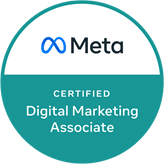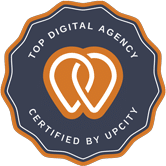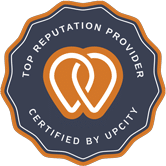The Real Role Of Online Reputation Management In Digital Marketing
Aside from its employees, your business’s single largest asset isn’t the patents it holds, its office spaces, or even its distribution and supply channels. All of these assets, though important, pale in comparison to your company’s reputation. A single statement taken out of context can result in your business’s reputation crashing down to the ground, especially when it goes viral for the wrong reasons.
Your potential customers will likely look up your business online before they buy anything from you. If they find something negative about your brand, they will most likely take their business elsewhere. This is where online reputation management (ORM) comes in.
Why Is Online Reputation Management Important?
More than half of digital marketers say ORM plays a significant role in their company’s success. However, we feel this figure does not reflect the full reality. All businesses should be conscious of their online reputation, regardless of their niche or business model. ORM is important for businesses that wish to maintain a positive brand identity and attract consumers. In other words, all businesses!
This is confirmed by a survey conducted in 2018. The study claims more than 60% of companies monitor their online reputation at least once a day, with 21% checking in on their reputation every hour. These businesses obsess over their online reputation because bad press results in a loss of customers.
Whether you’re dealing with a local business or a larger one, you wouldn’t want to transact with a business that has a shady reputation, would you? ORM helps your brand transform its online presence into something that generates leads and attracts customers instead of turning them away.
How Does ORM Impact Your Digital Marketing?
Digital marketing and online reputation management are closely intertwined. An excellent online reputation makes it easier for digital marketers to generate leads and convert them into customers, while a poor ORM performance complicates your digital marketing team’s job.
Here are some ways online reputation management makes an impact on your digital marketing strategy:
Sales
People make a purchase from your business because they feel they can trust the quality of its products and its after-sales support. That trust is built mainly on the strength of reviews and feedback from your customers.
A quick Google search of companies that operate in your niche will bring up the businesses that have the highest star ratings. Because of changes to the Google algorithm, a single one-star review can have a massive impact on your business. On the other hand, a five-star review from a satisfied customer can convince potential customers to give your business a chance. This means review management has a real impact on your sales figures.

Aside from boosting your Google search performance, you can also use reviews as social proof on your home page and product landing pages. Good reviews will show up in search results and improve your online profile.
The first step in claiming a presence in Google is to create a new Gmail account specifically for your business and claim your Google My Business profile. From there, you can ask your loyal customers to leave their feedback.
Search Engine Optimization
Online reputation management helps your business improve its search engine ranking. Performing activities related to ORM, such as claiming business listings across online platforms such as LinkedIn or Google My Business, increase your brand’s online presence. Encouraging your customers to post their reviews and write testimonials will help push your brand to the first page of the search results.
SEO-related activities also help you boost your online reputation. If you write guest posts on high-authority websites, you gain important backlinks, build your credibility, and enhance your reputation.
Online Referrals
Experts estimate that as of 2019, 65% of customers came to businesses via online referrals. If your reputation is strong, your clients and those in your network will recommend you.
Customer feedback management is an important part of ORM in digital marketing. While it is impossible to get purely positive feedback all the time, responding to negative comments and using intelligent email scheduling for these responses will send a signal to potential customers that your business is working hard to provide a satisfactory user experience.
Brand Visibility
While people claim that bad publicity is still publicity, that is not the case in industries where the competition is stiff. There’s always someone else offering a similar product or solution.
Your brand’s online reputation might be the one factor that sets you apart from the competition, so you need to take ORM seriously if you want to increase visibility and improve customer awareness of your products. ORM in digital marketing includes publishing blogs, social media posts, and forum posts about your brand and products – content designed to enhance your brand’s standing as a leader in its niche.
The only visibility your brand should be aiming for is positive visibility. Online reputation management helps you achieve that visibility and maintain it.
How To Identify the Status of Your Online Reputation
Before you can implement ORM in digital marketing, you need to know where your business currently stands. Here are four things you can do to assess your online reputation and draw up a plan for reputation management.
Search for your Business on Google
Your search results tell you a lot about your business. Run a Google search for your business, your product name, and the people who work for you, then look at the first five results (not counting paid ads).
- Is your brand in the first five results? If not, you will need to revisit your SEO strategy.
- Are those results generally positive? While you won’t get positive reviews all the time, you need to ensure that Google shows a favorable first impression of your business.
- Is there any additional evidence that your business is good at what it does, like thought leadership pieces or guest posts?
- Are there any other pieces of content in your first five results that need to be addressed right away, like unfair allegations against your company?
You should also check that your business information, such as its address, business hours, website, and contact details are correct on Google My Business. If not, it’s time to update it.
Check your Brand’s Social Channels and Hashtags
Your social media channels are also an important component of your online branding and reputation management. People will use your pages to check out your business information, leave reviews and comments, and engage with your brand. Use this checklist to run an audit of your social channels:
- How many followers does your brand have?
- When did you last create a post?
- Do you respond to comments? If so, how often?
- Does your brand reply to messages? If so, how long does it take (not counting chatbots)?
- Do you feel that your posts truly reflect what your brand is all about?
Besides your own branded social accounts, you need to check what people on social media say about your company.
You can search your brand name and company hashtags and see how many people are talking about you. If they are talking about your business, is it positive? If not, do any of your followers defend your brand, or do other negative commenters chime in?
Browse Through Review Sites
Much of your online reputation comes from the comments your customers (and critics) leave on review sites. You need to take a close look at these sites to get a sense of overall customer sentiment towards your brand. Here are a few ways to do that:
- Check your Google reviews. How many stars do you have? Do you respond to reviews, and do you have a strategy for these responses?
- Look at your Facebook reviews. How many stars does your Facebook page have? What is the overall tone of the reviews your customers leave? How quickly does your social media team reply to these reviews?
- Does your business have a presence on Yelp, Angie’s List, TrustPilot, and similar sites? If not, do you have any plans for creating one? What is your strategy for dealing with critical comments?
- How does your business rank as an employer? Do your current and former employees have good things to say about how you manage your business, or is it a mixed bag? While Glassdoor is not a product review site per se, many customers will think twice about making a purchase from a business that treats its employees poorly.

Aside from review sites, you could also look at websites that compare your products and services with the ones your competitors sell. How do your products stack up against the competition? This information will help you improve your products and determine how you’ll market them.
Set Up Reputation Monitors
Unless you have a huge team that operates around the clock, you can’t monitor everything manually. Therefore, you will need a tool to monitor your reputation in real-time.
For example, Google Alerts will “scrub” the Internet for mentions of your business, key people in your company, and your products. Just set up your relevant keywords, and they’ll be delivered to your inbox. You might also use another reputation monitoring software like BrightLocal or Qualtrics for more advanced metrics and settings.
These solutions will alert you to potential issues with your reputation and allow you to take action before they start inflicting significant damage to your business.
Bottom Line
As long as your business is in operation, people will always have something to say about it, and not all opinions will be positive. Doing online reputation management will help attract customers and address criticism by emphasizing your business’s positive aspects and addressing its critics.
ORM in digital marketing is not something you do once and then forget. Like all the other aspects of your marketing strategy, it needs constant monitoring and continuous improvement to ensure that your reputation stays positive. Regardless of your industry, you need to protect your reputation and convince potential customers that they’re dealing with a brand that knows what it’s doing.
Bio
Owen Baker is a content marketer for Voila Norbert, an online email verification tool. He has spent most of the last decade working online for a range of marketing companies. When he’s not busy writing, you can find him in the kitchen mastering new dishes.
SUBMIT FOR Online Marketing Analysis
Get an Online Marketing Analysis For Your Business











